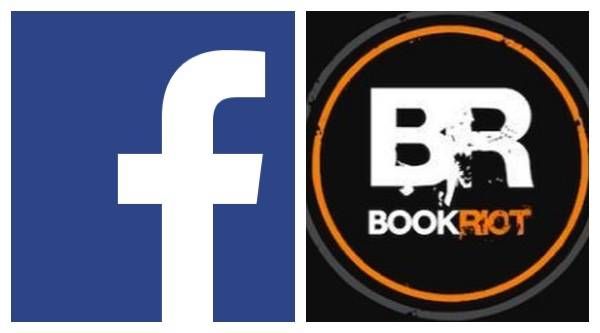
Does FanFic Fix Fiction?
George R R Martin writes strong female characters and attends cons and opposes GamerGate and maintains a blog and BY ALL APPEARANCES, lives in the two-thousand-teens. And yet, the man hates fan fiction.
Diana Gabaldon, likewise a creator of self-actualized ladypersons and likewise a blogger and likewise alive and sentient in the current Year of Our Lord, also hates fan fiction (but has since deleted the relevant posts because you can definitely get rid of stuff once it’s on the internet).
Brit knows.
Anne Rice forbids it. Ursula Le Guin is fine with people writing it for their friends, but is apprehensive about people sending things over ‘the Web’ where it can be seen by just anybody (like, you’re supposed to just mimeograph it and pass it around at the bar or some shit). On the other hand, Jasper Fforde used to hate it, but now that he understands it better, he’s come around. Lev Grossman is ‘unreservedly pro-fan-fiction.’ Cory Doctorow calls it ‘active reading’ in an article he wrote in praise of it, for Focus magazine.
There are as many opinions about fanfic as there are people with assholes, and thanks to the internet we can take a peek at everyone’s metaphorical asshole. I’m not going to say I don’t understand the authors who hate it, who fear its legal repercussions, who feel protective of their characters and hurt when those characters are represented acting in a way they, the author, feel is contrary to their…uh…character. I GET IT, because I am a human person with human feelings and I understand other human feelings.
I just think it’s misinformed and wrong-headed and betrays a basic misunderstanding of how fandom works. Of how the internet works. Of how the Mary Zimmer Bradley controversy (the landmark case for Can’t Publish My Book, Years of Labor Wasted, All Because Fanfic) may have actually gone down. Of how free advertising works. Of how people aren’t reading Jamie Lannister/Jamie Fraser fic INSTEAD of the next Song of Ice and Fire or Outlander novel, they’re reading it in the interminable spaces between. They’re not writing it to ride the coattails of fame, they’re writing it instead of Annie Wilkesing anybody. They’re writing and reading it to keep a fire going and to express a gleeful, untetherable love for the worlds and characters created.
They’re also writing to right a wrong. Traditional publishing is notoriously light on LGBTQ authors and characters, on persons of color, on ‘non-traditional’ relationships or experiences. Fanfic can be deeply, truly weird, but it can also be so much more representatively normal, so much more like the world as it actually exists. People write fanfic to make literature look more like them and to infuse their favorite worlds with their own desires and experiences. The Hunger Games where the heroine isn’t Kantiss but Rue. Brokeback Mountain: The Short Story Not The Movie where Jack and Ennis escape to some big, gay utopia and live regular lives where sometimes they fight but mostly they just drink coffee together like a couple of married dudes.
It also depicts the world as it ISN’T, but SHOULD BE. There are spaces in the fanfiction universe where asexuality is unremarkable, or where polyamory is simply one of the many amories and no one cares. You can fic ANYTHING, and it creates a normalizing effect, introducing readers to attitudes and identities outside of their own experience. Not to get all feely up in here, but it fosters understanding.
I have never been so sincere about a gif before.
Which is why I get it, but I don’t get it. The GRRMan himself spoke out against the recent Hugobacle, wherein a bunch of Sad Puppies attempted to return the Hugos to the white, male, cis glory days from which, let’s be honest, they haven’t strayed too far. The Awards have been compromised in a way that may never be salvageable. But fandom cannot be compromised. It can’t be bought or silenced or taken over. It is a many-headed hydra, self-regulated if regulated at all, a glorious, ever-renewing entity that no Sad Puppy can tyrannize.
Obviously there’s a difference between diversity in publishing and diversity in fanfic. There is still a certain…let’s call it “legitimacy” with quotation marks – or maybe “cachet”– to being published (also there are dollar dollars, y’all). We can’t let publishing go on as it is, with its whitewashed covers and its books about girls that are Only For Girls and its characters that “just happen to be gay” and its extremely narrow view of what’s publishable, what’s marketable, just because an alternative exists in the undergroundternet. Traditional publishing is cracked, and fanfic isn’t the answer.
But it’s an answer. And it should be more than tolerated. It should be celebrated.
In this metaphor, fanfiction is Zoidberg.
How do you feel about fanfiction? Are authors right to want to keep their intellectual property sacred? Is fanfic going to save publishing from itself?
Jkjkjkjk I can hear you. See you in the comments.
____________________
Want more bookish goodness, news, posts about special book deals, and the occasional puppy reading pic? Follow us on Facebook:






